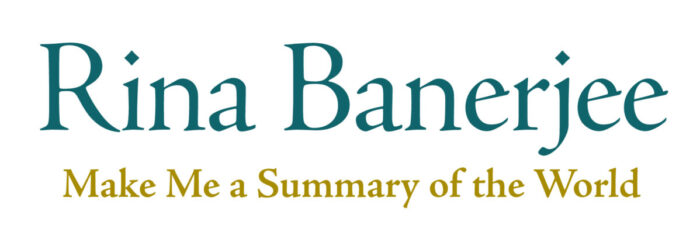
Banerjee uses objects and materials from such places as India and Africa as reminders of goods that historically were imported by imperialist nations from their colonies. These products were often prized more for their decorative qualities and exoticism than their authenticity—indeed, many were produced solely for the export market or as tourist souvenirs. Each of Banerjee’s assemblages, while carefully composed, nevertheless evokes the jumbled array of an international bazaar. From the colonial past to the globalism of today, these materials, whether authentic or for the tourist trade, provide only a veneer of cultural understanding. For Banerjee, the difficulty of pinpointing their authenticity echoes the disorienting nature of human displacement. She says, “In Western art, to explore something you cannot identify with is a kind of dishonesty, because authenticity is a compass . . . [but] authenticity does not exist for the diaspora.”

When scenes travel . . . bubble bubble, 2004
Video
Courtesy of the artist
Banerjee has created very few videos in her career. Filmed on the streets of Chennai (formerly Madras) and in her family’s home there, When scenes travel is meant to evoke the sense of being divided or displaced that Banerjee perceives in diasporic communities. A family video of relatives teaching Tamil to her young daughter, born in the United States, emerges from the screen’s center. If you listen closely, you can hear them ask if she likes pizza—a food associated with American identity.
Duration: 8 minutes, 45 seconds
